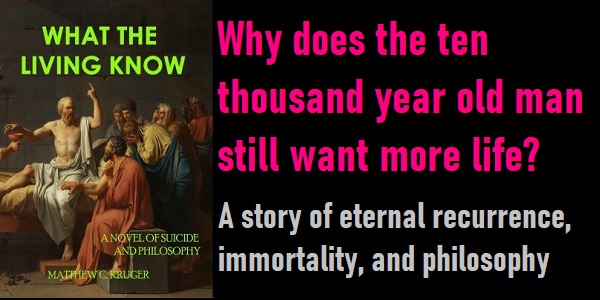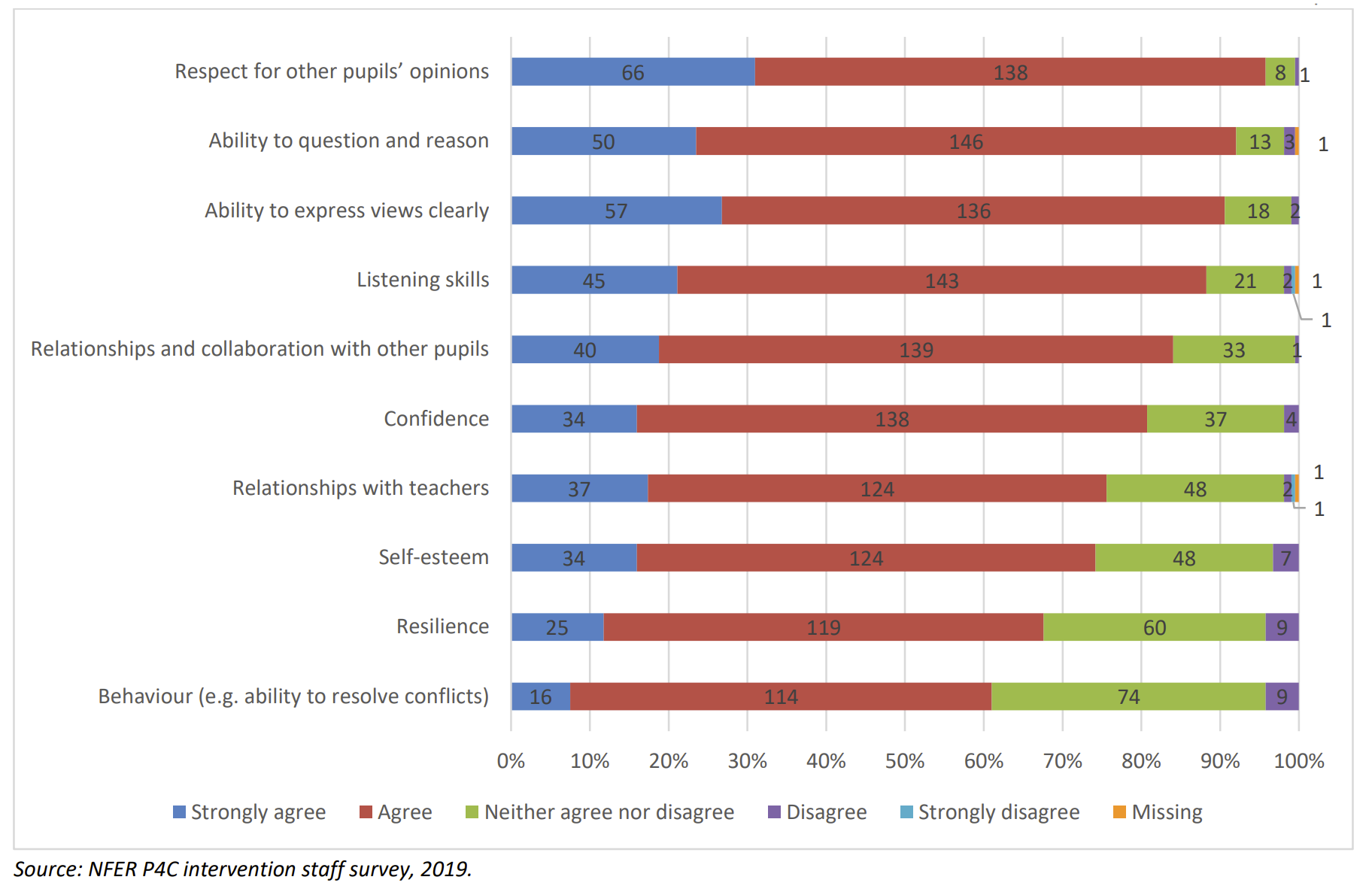The study is available here. The Guardian reports on it here.
However, the EEF has no plans at this time to fund more research on the matter.

In 2015, a small study purported to show that teaching elementary school students philosophy improved their math and reading skills. The following year, the Education Endowment Foundation (EEF) funded a large-scale study of the effects of teaching philosophy to young children. The results of that study have now been announced.
- On average, no evidence that P4C had a positive impact on reading or math skills for all pupils
- On average, no evidence that P4C led to additional progress in reading skills for FSM-eligible pupils
- On average, no significant improvements in self-reported character related skills among P4C students.
The following graph shows the extent to which teachers agreed that the P4C program had various positive effects on their students:

On that last point, the researchers add that “this may be due to the fact that single items may not be suitable for capturing complex character and metacognitive outcomes.”
The study looked at 3,601 students across 198 schools in the United Kingdom, a portion of whom were exposed to the Philosophy for Children (P4C) curriculum, “an approach to teaching and learning, in which children take part in philosophical enquiry.” The curriculm “aims to enhance thinking and communication skills, boost confidence, self-esteem and improve behaviour” and to “help children become more thoughtful, reflective and reasonable individuals.”
The point of the study was “to measure the impact of P4C… on reading for pupils eligible for Free School Meals (FSM), on reading and maths for all pupils, and on pupils’ social and communication [“character-related”] skills.”
Given this positive evidence, the researchers say, “there may still be a benefit in evaluating the effects of P4C on non-cognitive outcomes, perhaps using other measures that capture the complexity of changes in character and metacognitive skills.”
Related: More study of and data about the possible benefits of pre-college philosophy education is needed. A longitudinal study of students who take place in a P4C summer camp was launched just a couple of years ago. One guest author, Myfanwy J. Williams, notes that P4C methods are not the only way to do philosophy with children. A 2010 report says that the P4C curriculum may “help build resilience to extremism among young people.” One method of teaching critical thinking skills—argument mapping—has some empirical support.
Oh well. At least the study found that there were no “negative effects on pupil outcomes” from taking part in P4C. Was there evidence of any program benefits? One: “teachers who took part in P4C reported feeling that the programme had a positive impact on pupils’ social, thinking and communication skills, and found it particularly helpful for children who were less self-confident.”
Here are the results:





